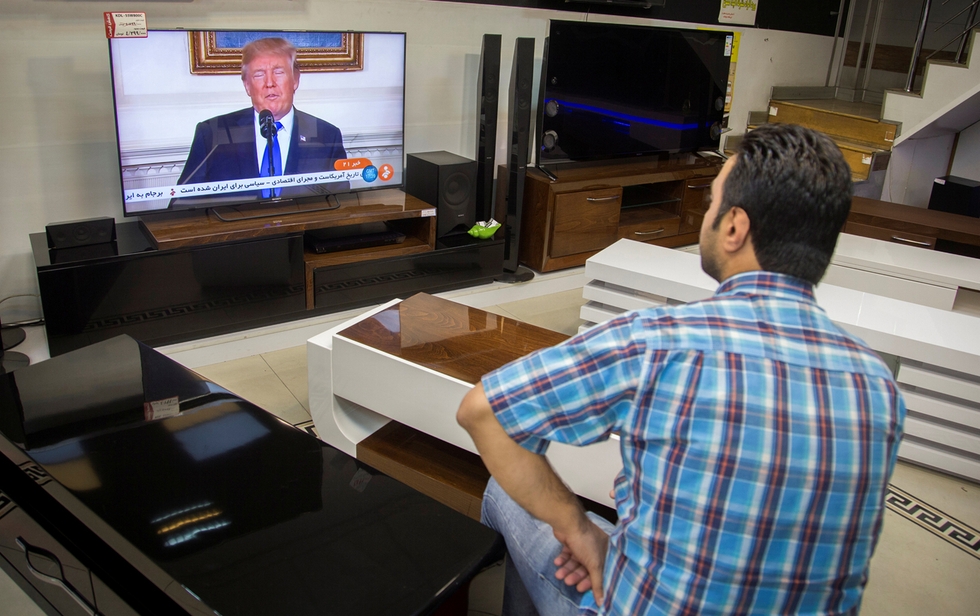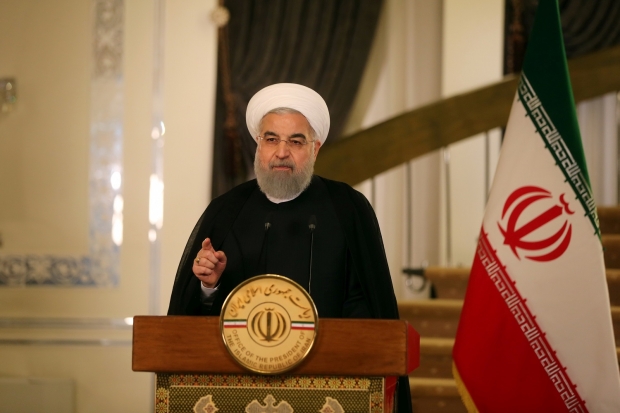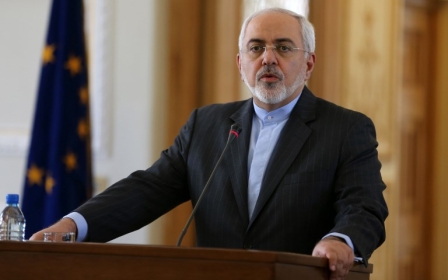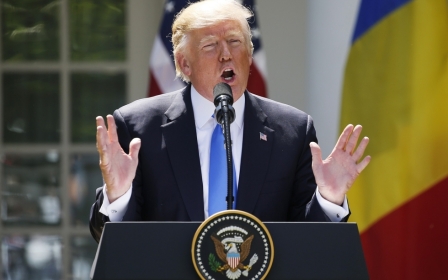Israel approves, EU concerned: World reacts to Trump's Iran deal decision

International reaction to US President Donald Trump’s decision to decertify the Iran nuclear deal ranged from widespread condemnation among Western allies and Russia, to unequivocal approval from Israel and Saudi Arabia.
Iranian President Hassan Rouhani called Trump's speech announcing a new strategy against Tehran "a tissue of insults and baseless accusations".
"Today the United States is more than ever opposed to the nuclear deal and more than ever against the Iranian people," he said in a televised address shortly after Trump's speech.
In a joint statement, French President Emmanuel Macron, UK Prime Minister Theresa May and German Chancellor Angela Merkel warned the United States against taking decisions that could harm the Iran nuclear deal, such as re-imposing sanctions.
The three leaders said that they shared US concerns over Iran's ballistic missile programme and regional destabilising activities and were ready to work with Washington to address those concerns.
Still, “The nuclear deal was the culmination of 13 years of diplomacy and was a major step towards ensuring that Iran’s nuclear program is not diverted for military purposes,” the statement read.
“We encourage the US Administration and Congress to consider the implications to the security of the US and its allies before taking any steps that might undermine” the Joint Comprehensive Plan of Action (JCPOA), which is the formal name for the Iran nuclear agreement.
The chief of the UN atomic watchdog reiterated on Friday that Iran was under the world's "most robust nuclear verification regime".
"The nuclear-related commitments undertaken by Iran under the JCPOA are being implemented," Yukiya Amano, director general of the International Atomic Energy Agency said.
Russia, echoing the EU’s remarks, said that there was no place in international diplomacy for aggressive rhetoric, and that such methods were doomed to fail.
Trump's announcement "once again underlines the inadmissibility of using aggressive and threatening rhetoric in international relations," Russia's foreign ministry said in a statement.
"It is a hangover from the past, which does not correspond to modern norms of civilised dealings between countries," the statement said.
It added that Russia views Trump's decision "with regret".
It is a hangover from the past, which does not correspond to modern norms of civilized dealings between countries
- Russian foreign ministry statement
"We expect that this step will not have a direct effect on the progress of implementation of the agreements, although, clearly, it does not correspond to the spirit and letter" of the nuclear deal, the Russian statement said.
Israel and Saudi welcome Trump's move
Israeli Prime Minister Benjamin Netanyahu, meanwhile, congratulated Trump on his "courageous decision" after he refused to certify the multi-national agreement with Iran.
"If the Iran deal is left unchanged, one thing is absolutely certain. In a few years' time, the world's foremost terrorist regime will have an arsenal of nuclear weapons. And that's a tremendous danger for our collective future," Netanyahu said in a video in English.
Saudi Arabia also welcomed the new US policy towards Iran and said lifting sanctions had allowed the Islamic Republic to develop its ballistic missile programme and step up its support for militant groups, state news agency SPA reported on Friday.
The Gulf kingdom said Iran took advantage of additional financial revenues to fund Hezbollah and Yemen's Houthi group.
The United Arab Emirates also said it fully supports the new US policy towards Iran, the state news agency WAM reported.
"The UAE announces its full support to the new US strategy to deal with the Iranian policies undermining security and stability," WAM said on its twitter account.
Bahrain joined in expressing support for the shift in US policy on Iran's nuclear and ballistic missile programmes.
However, Israel’s intelligence minister warned that killing the agreement may lead to war.
Israel’s Channel 2 TV asked Intelligence Minister Israel Katz whether he saw a risk of war after Trump’s speech.
“Absolutely, yes. I think that the speech was very significant,” Katz responded. “Iran is the new North Korea. We see where things are going.”
Democrats criticise Trump
In the US, Democrats rushed to criticise Trump’s decision.
Nancy Pelosi, the leader of Democrats in the House of Representatives, called decertifying the deal a “grave mistake” that threatens America’s security and credibility.
Senator Ben Cardin, who had opposed the deal, criticised Trump's decision, describing it as a "reckless, political decision" that "directly threatens US national security."
Former Vice President Joe Biden said said jeoprodising the deal does not isolate Iran; "It isolates us."
Top US military officials, including Secretary of Defence James Mattis, had advised
Trump to stay in the deal.
Senate Democratic leader Chuck Schumer, who also had opposed the deal, said both Democrats and Republicans should heed to military leaders’ recommendations to honour the deal.
New MEE newsletter: Jerusalem Dispatch
Sign up to get the latest insights and analysis on Israel-Palestine, alongside Turkey Unpacked and other MEE newsletters
Middle East Eye delivers independent and unrivalled coverage and analysis of the Middle East, North Africa and beyond. To learn more about republishing this content and the associated fees, please fill out this form. More about MEE can be found here.





